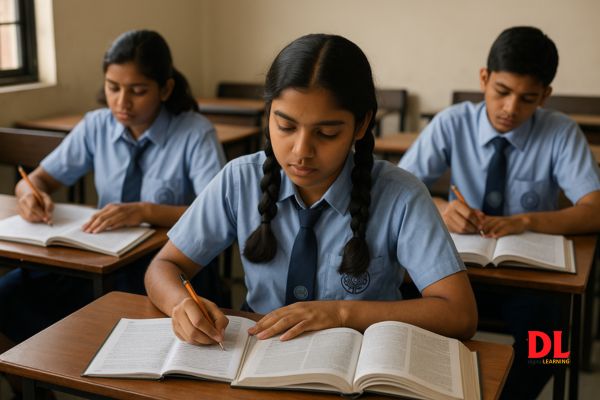
The Central Board of Secondary Education (CBSE) has confirmed that Class 9 students will take Open-Book Assessments (OBAs) starting with the 2026-27 academic year. The decision, finalised on June 25 by the board’s Governing Body, is part of a broader push under the National Education Policy (NEP) 2020 and the National Curriculum Framework for School Education (NCFSE) 2023 to make learning more skill-focused and less reliant on memorisation.
Unlike traditional closed-book tests, OBAs will allow students to use approved textbooks and reference materials during the exam. The approach will be integrated into all three term-wise written assessments for core subjects — Languages, Mathematics, Science, and Social Science. The aim is to encourage deeper understanding, analytical reasoning, and the ability to connect classroom learning to real-life situations.
The policy follows a series of trials in select schools. For Classes 9 and 10, the tests were conducted in English, Mathematics, and Science, while senior students in Classes 11 and 12 attempted them in English, Mathematics, and Biology. Results showed a wide score range, from 12% to 47%, highlighting challenges such as effective use of resources and interpreting multi-disciplinary questions. Despite these hurdles, educators believe OBAs can strengthen higher-order thinking skills and reduce exam-related anxiety.
Also Read: UP Cabinet clears three new private Universities
To ensure a smooth rollout, CBSE will issue a clear framework, sample question papers, and implementation guidelines. Initially, schools will have the flexibility to decide whether or not to adopt the system during the first phase.
This isn’t CBSE’s first foray into open-resource assessments. A decade ago, the board experimented with the Open Text-Based Assessment (OTBA) for Classes 9 and 11, but it was discontinued after mixed feedback. The new plan, however, comes with more robust preparation and teacher support to make it a long-term success.




















